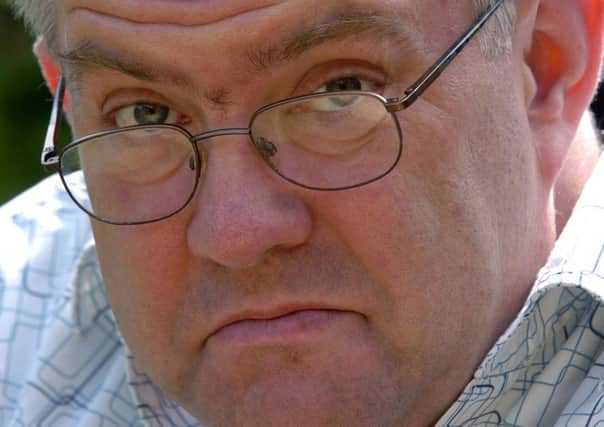Ian McMillan: Love A-E-I-O-U


For a start, my six decades on this spinning earth have taught me that we begin our life with vowels. My new grandson Noah, at just a few weeks old, communicates entirely in vowels; he opens his little mouth and they spill out and somehow we know exactly what he means, even though they seem to have no subtlety about them at all. Isla, at nearly 11 months old, has added consonants to the mix, like she’s selecting letters on Countdown, but the vowel still has the upper hand. It’s as though the vowel can get to the ear more quickly, whereas consonants take the scenic route, stopping to for a cup of tea on the way. My grandson Thomas is mainly consonants, of course, but that’s because he’s 12.
Also, while I’m riding First Class on the Vowel Express to Vowel Central, it’s true to say that we Yorkshire people communicate almost entirely in vowels, which some (though not me) would say make us as sophisticated as baby Noah. Listen to us on the street, meeting each other: we say “Eee” and we say “Aye” and we say words that relegate consonants to the back of the queue, words like “By”, where the emphasis is on the letter Y, or the honorary half-vowel as we amateur linguists call it. Aliens landing in Bingley or Tong or on Ilkley Moor might interpret our lilting speech as a kind of birdsong, and maybe in a way they’d be right.
Advertisement
Hide AdAdvertisement
Hide AdThe vowel is safe round here, and will remain so as long as there are Yorkshire folks walking the Earth, but I worry that it sometimes feels like a bit of an antique part of speech and writing in the modern world. Look at text messages, where “See you later” becomes “C U ltr” and six vowels have been replaced by one, and, although we know what the text means, somehow it feels more functional and less beautiful, as though the words we use are being boiled down to a set of instructions.
The other reason I’ve been thinking hard about vowels and how they work is that for the past few months I’ve been working with a number of different composers writing lots of words for choirs to sing and the first thing I learned as I tried to make lines that could leap from the page to the air was that vowels are easier to sing. It’s obvious, really, but it took me a while to work out.
So, let’s celebrate the vowel and proclaim it from the rooftops because without them you’d just be reading the Yrkshr Pst, and that would be no fun, would it? Wld t?